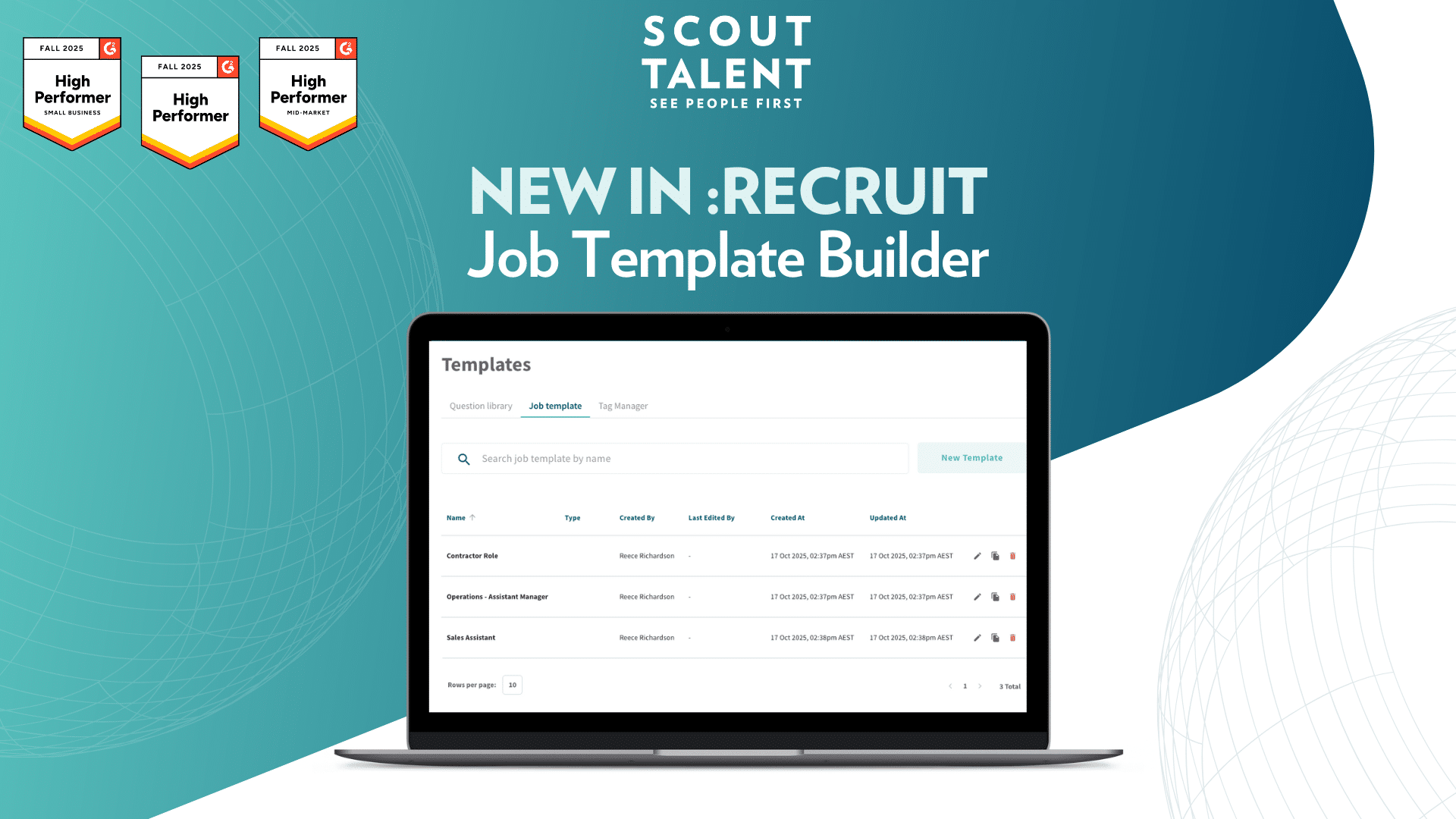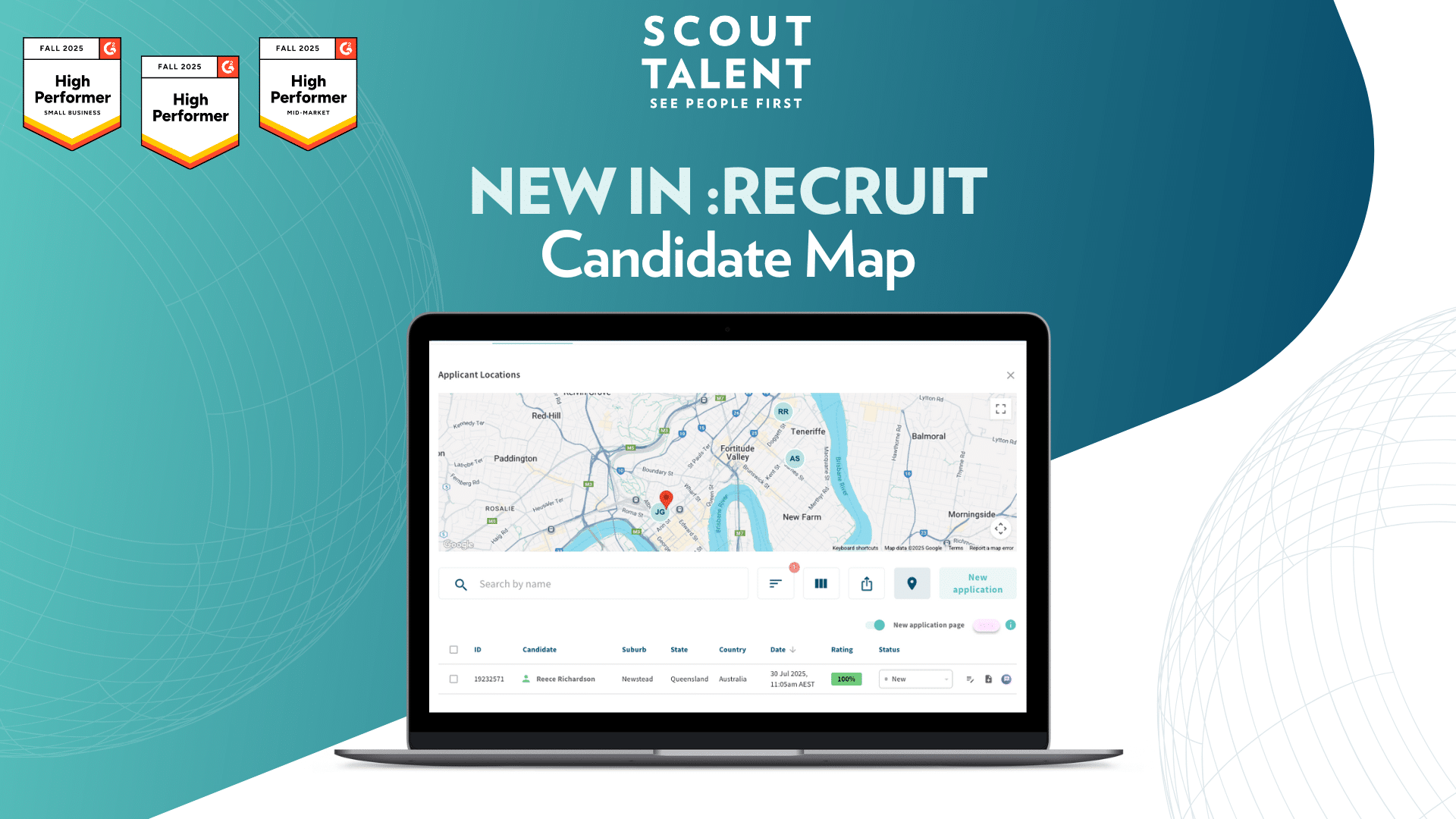Recruitment as we know it can sometimes fall into a standard procedure. From a candidate’s perspective, it can be very ‘lather, rinse and repeat’: apply for a job, get called for an interview with the hiring manager, then land the job or get rejected.
While this method is what most candidates expect, you need to shake things up to meet your organization’s hiring needs in today’s dynamic recruitment landscape. An innovative way you can land multiple higher-quality candidates and recruit efficiently is by running a group information and interview session (GIIS).
What is a group information and interview session?
A GIIS is less like a group interview and more like a workshop – one designed to give candidates an understanding of why they would want to work for you, as well as allow them to showcase their skills in a face-to-face group setting. Whether you’re looking to hire multiple people or just one, a GIIS is an efficient hiring method that gives you better long-term potential from your candidates.
An effective GIIS should run for around three hours and include:
- An introduction to your organization
- Two to three activities
- One-on-one interviews, if necessary
But before you run a GIIS, you should understand exactly what you’re looking to achieve and what benefits you can expect from this talent engagement method.
1. You will get more out of your candidates
The trouble with a traditional interview is that in the limited time slot, candidates are usually ‘performing’ and you won’t necessarily get the full scope of their skills and personality. In a group interview and information session, there is less pressure on candidates to perform – the focus is on them spending time with you to learn more about your organization and demonstrate their skills.
One activity that is particularly effective during a GIIS is a prioritization task. To complete this, candidates are given around 12 daily duties they would be expected to do in the role, which they must order in from 1-12 by priority. They have to do this task independently, then share their answers in a group.
This task is an opportunity for you to see how candidates work together, collaborate, manage conflict, prove their point, and persuade others – all skills that you otherwise may not be able to gauge from a traditional interview.
A GIIS setting is more engaging for candidates, which allows them to more easily build a connection with your purpose and showcase any attributes that will make them a great culture add.
2. It’s great employer branding
The ways in which a GIIS contributes to your employer branding go both ways: you get to sell your organization to your candidates during the session, and the GIIS sells your organization to prospective candidates.
Firstly, a GIIS is great employer branding because it’s an opportunity for you to discuss your values, purpose, people and culture in a more informal setting with candidates. Giving candidates the space to discuss and ask questions on these topics during a GIIS shows them that you care about connecting with and hiring the right candidates.
A GIIS will capture the attention of prospective candidates, too. Word of mouth goes a long way here – don’t underestimate the impact of people hearing directly from previous candidates or current employees at your organization that a GIIS is part of your recruitment process. Hearing this will give prospective candidates the impression that your organization is one that does things differently and cares about your candidates – all before they’ve had any contact with you.
3. Build your talent pool
Ideally, you can expect to hire up to 25 percent of the attendees at a GIIS, which is an impressive return on a single session. But what happens when you don’t have the budget or capacity to hire all the great candidates who attended?
This is the perfect opportunity for you to build your talent pool. Because of their positive experience, candidates who you may not choose to hire at a particular GIIS will likely be interested in staying in touch in case other opportunities arise.
So not only can a GIIS land you multiple high-quality candidates, but it will give you the ability to expand your talent pool and future-proof your recruitment, which may come in handy in times of skill shortages in particular roles and industries.
4. Quick turnaround
One of the biggest pain points experienced by hiring managers is that the recruitment process is lengthy and time-consuming. Add to that the pressure of hiring multiple people, and the time typically required to fill these roles rise by weeks.
With a GIIS, the turnaround time is cut significantly due to the way multiple candidates can be effectively assessed at once. A Scout Talent group information and interview session, for example, can be done within a few weeks. And the best part? A team of specialists will help you facilitate the process from start to finish, with room for you to decide your level of involvement.
Overall, a group information session is an investment with many returns. Not only can you successfully offer roles, but you’ll be raising engagement with your organization, boosting your employer brand, and building your talent pool – all within a reasonable time frame.
This article originally appeared in Recruitment Marketing Magazine and has been republished here with permission.






